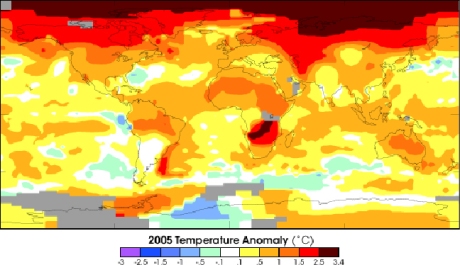From KUOW News:
Washington state might seem immune to the hot temperatures that are affecting the rest of the country, but that’s not the case. Some people may reject the idea of climate change, but scientists say summer temperatures have been climbing over the years, and it will continue to get hotter over time. It’s these kinds of heat conditions that put many people at risk. Some researchers estimate that in 2004 alone the cost of hospitalizing people due to extreme heat was nearly a billion dollars. In the first part of our report on heat and health, KUOW’s Ruby de Luna reports on the health impacts of climate change.
TRANSCRIPT
Remember the heat wave of 2009?
News Clip: “Seattle tied an all–time record high Tuesday, and it’s getting hotter… “
That heat event in the Pacific Northwest lasted a week.
News Clip: “Today, Seattle is supposed to reach triple–digit temps for the first time ever.”
Seattle peaked at 103 degrees, a record high for the area. Well, scientists say we can expect hotter days ahead.
Richard Fenske is professor of environmental occupational health sciences at the University of Washington.
Fenske: “When we look across a period of 20 to 40 years, we are confident that temperatures are increasing, and this will result in severe heat events and probably longer heat events, but not necessarily every year.”
In 2009, Fenske and his colleagues in the School of Public Health were awarded a federal grant to study how climate change will affect people’s health. In a nutshell, the study concluded that heat events will likely lead to what they call excess deaths. How do researchers know that?
Michael Yost: “We counted the dead bodies, and we continue to count them.”
That’s Michael Yost, also a UW professor in the same department. He and Fenske are part of the research team that’s analyzing the data for the study.
Here’s what they did: They tracked Washington’s previous weather records between May and September for the last 26 years. They noted a rise in overall temperatures during that time. The team also looked at death records for the same time period. They found that whenever there was a heat event, there were more deaths, mostly elderly people.
The thinking goes that if temperatures continue to rise in the next few decades, so will the number of excess deaths. But it’s hard to predict just exactly how much warmer it’s going to be, or how many hot days we’re going to have. So, Fenske and Yost came up with a range of scenarios. On the low end, the region may have only 16 extreme heat days in a given year; or, on the high end, as many as 30 days.
Yost: “What we’re trying to do is to not simply say this is one possible outcome in the future, but to simulate many possible outcomes, and so what we end up with is a range of possible values for how many heat events might occur in, say, 2025.”
The study’s goal is to help local public health agencies and emergency responders prepare for heat events. Richard Fenske says this will prevent deaths and unnecessary hospitalizations.
Fenske: “We can develop a warning systems, education, transportation systems to get elderly people to cool environments, like a public library, during a heat event. There are ways to prevent these deaths if we choose to do so, but we have to know where and when they might occur.”
And since extreme heat days are uncommon in the Puget Sound region, most homes don’t have cooling systems. And when it does get hot, especially for an extended period of time, most people don’t know how to deal with the heat or lose the ability to take precaution.


